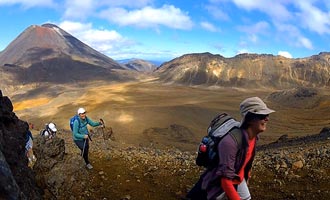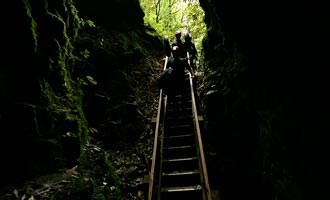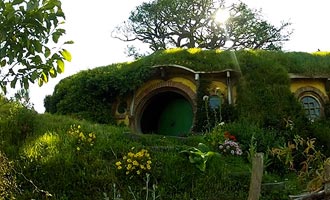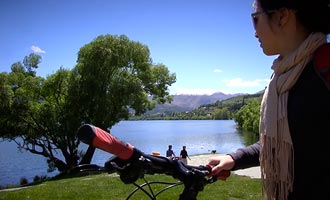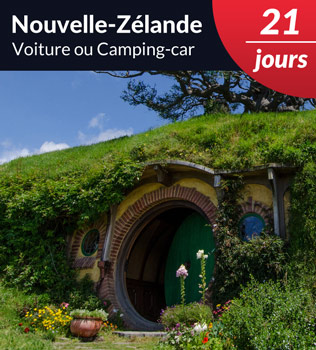
What Budget for a New Zealand Holiday?
Please contact us and we will help you to organize your trip! It's free and without commitment.
- Read the post
- Details
- Advices
Presentation.
- 1How to Calculate the Budget of Your Stay?
- 2Should You Call a Travel Agency?
- 3Plane Tickets and Formalities.
- 4Incidental Expenses During Your Stay.
- 5Your Food Expenses.
- 6Your Vehicle Rental Expenses.
- 7Your Accommodation Expenses.
- 8Your Expenses for Activities.
- 9Your Expenses in Shopping and Souvenirs.
- 10Some Truths About the Budget Required.
How to Calculate the Budget of Your Stay?
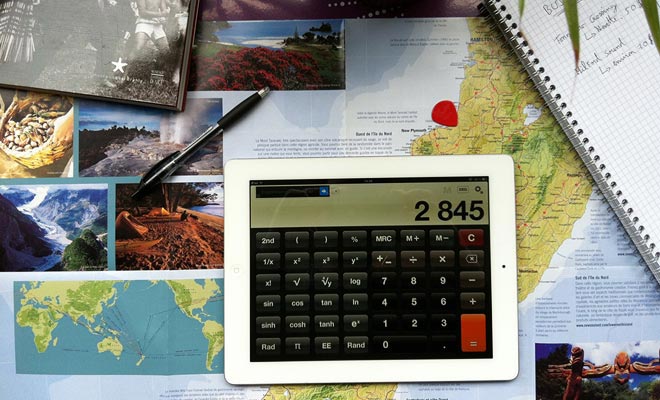
Calculating the travel budget is a delicate operation.
The purchasing power is stronger in Europe than in New Zealand (even if the gap decreases each year). However, the cost of living is quite expensive in New Zealand, which compensates partially the difference. The trip to New Zealand is expensive, but it is possible to save money.
Kiwipal presents many itineraries for cars and motorhomes. The price for each stay is generally much lower than the one charged by tour operators. But you have to consider also the expenses on site to calculate your budget. Not to mention the incidental expenses that nobody seems to know, but do exist.

The New Zealand dollar is the official currency of the country.
The Kiwipal philosophy is to help you to calculate your budget, but do not expect me to give you a precise estimate, since there are as many budgets as travelers. You should start by choosing an itinerary on Kiwipal and get yourself a paper and a pencil. We will study every expense together, but I must clarify the issue of travel agencies before we start.
Rates quoted on this page are in New Zealand dollars with VAT tax. Mouse over a price to display its conversion into euros. Some rates are in euros when they involve a purchase to make before departure.
Should You Call a Travel Agency?
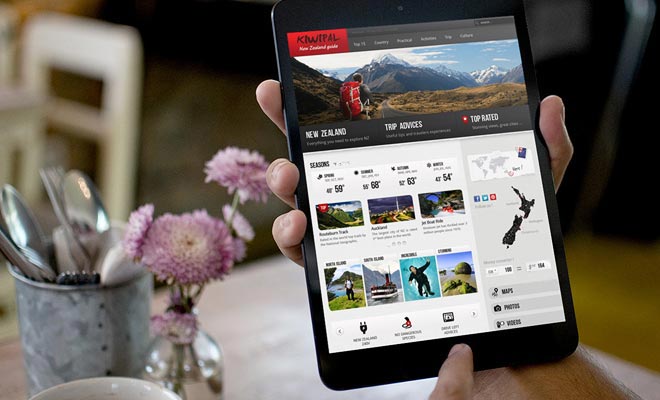
You do not need a travel agency thanks to Kiwipal.
Try to book your trip by yourself and you will come with a price much more attractive than the one requested by a travel agency.
Going through an agency, you pay the travel agent, but also a company whose expenses (insurance, taxes ...) are important and reflected on the prices.
In the Internet era, you no longer need a travel agent to plan your stay in New Zealand. Why should you pay an intermediate when you can book your entire trip during a single weekend?
Plane Tickets and Formalities.

An A / R ticket to New Zealand should be booked early.
In any case, a majority of travel agencies no longer offer to book plane tickets (another sign of the inutility of going through an agency). Not a problem, because the procedure on the Internet presents no difficulty at all. However, plane tickets are not the only expenses to be expected.
Purchases Before Departure
I suggest you read my article about the best way to prepare your luggage for New Zealand. You might need to buy a few things to complete your luggage. Depending on the hikes you want to follow, the budget can increase fast.
Visas
Good news if you live in Europe, because you probably don't need a visa (to double-check however). Provided, however, that your stay does not exceed the duration of three months.
Assurance voyageur
Count a minimum of € 100 for a travel insurance with cancellation options. Multirisks insurances are generally sold between 2 and 4% of the journey's total price.
Traveling to the other side of the globe without an insurance is strongly not recommended.
I'm not trying to scare you, but the care of a fracture and repatriation exceed € 15,000. this is enough to ruin your holiday and your bank account.
You can check if the services associated with your credit card include an insurance.
But even so, you should subscribe an additional insurance (e.g. Chapka Insurance).
Plane Tickets
A round-trip ticket between Europe and Auckland cost about 1200 euros. Prices decline slightly if you book well in advance, but do not expect to go below 1100 euros. The journey often involves a stopover in Dubai or Singapore. Maybe you will have enough time to visit a city on your way? To be able to pay for a meal in town or at the airport you should take $25 à 50 $ for a shuttle and a restaurant.
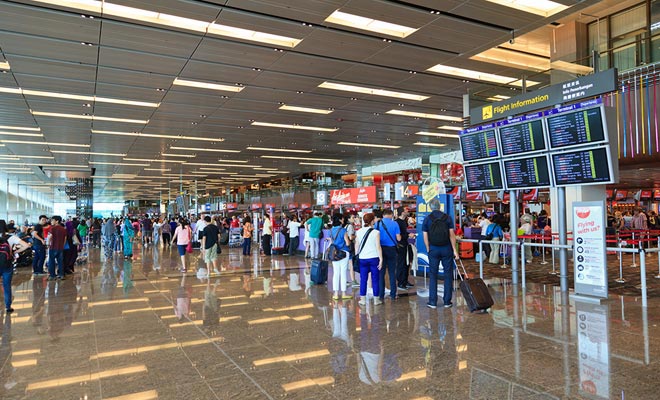
The stopover in Singapore sometimes allows to visit the city.
Do not neglect anything that can make your flight more enjoyable. Hearing protection and cushions for the neck are highly recommended for a 24-hour trip.
For domestic flights in New Zealand, it is advisable to book at least four months in advance to get a better price. As an indication, here are some pricing examples:
| FLIGHT | AVERAGE PRICE |
|---|---|
| Auckland - Wellington | $68 |
| Auckland - Christchurch | $91 |
| Auckland - Queenstown | $100 |
| Auckland - Dunedin | $150 |
| Auckland - Rotorua | $130 |
Incidental Expenses During Your Stay.
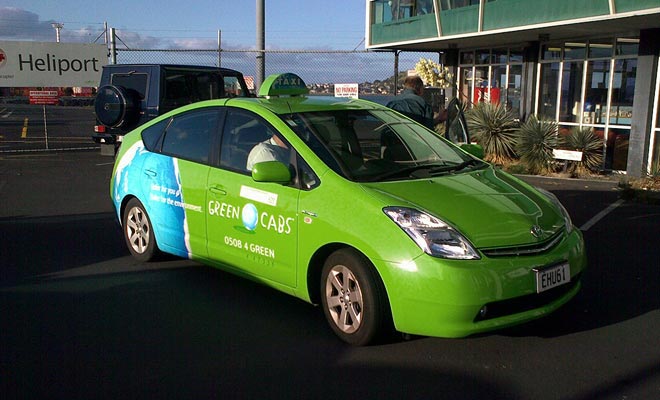
Taxi rides are often forgotten in budget calculations.
There will always be unexpected expenses during your trip. You cannot escape it, but I can warn you about the most common expenses.
Fees at the Airport
After a 24-hour flight, adding another distance by subway or public bus should be reimbursed by your care insurance. You should include the taxi cost in your budget (you will probably thank me later for this suggestion). Hopefully, the tax that used to exist for travelers leaving New Zealand from elsewhere than Auckland's airport has been removed long ago, but is still mentioned in outdated web guides.
Tax on ATM withdrawals abroad.
Ask your bank how much it charges an ATM withdrawals abroad. This is also the occasion to ask the amount of your credit card ceiling in New Zealand. In any case, one should always travel with the phone number of his bank. On average, banks charge 7 $ for every 150 NZD withdrawn abroad. It may seem appropriate to make a single withdrawal before leaving to New Zealand, but I advise against it for safety reasons, even if you lose some money in bank commissions.
Comparing prices for withdrawals using ATM: Show rates
VAT on products
Local VAT is called the GST (Goods and Services Tax). It is fixed to 15% of the product price. Many countries allow the tourists to get a refund of this tax at the end of their stay, but this is not the case in New Zealand! A bad surprise, but there is nothing you can do about it.
Your Food Expenses.

Food is a bit cheaper than in France.
This is the third most expensive part of any budget after the plane tickets and the accommodations. Eating in New Zealand is a bit cheaper than in most European countries, but the gap tends to lower each year.
Restauration
The restaurant price is on average 10% cheaper than in France, for example. Grocery stores are cheaper with 15% deviation. The prices fall a bit when you leave the big cities. Here are some classic expenses to give you an idea of the budget required.
| SERVICE | PRICE |
|---|---|
| Breakfast | $10 |
| Meal in fastfood | $15 |
| Meal in a restaurant | $20 |
| Meal in a good restaurant | $30 |
| Meal in a good restaurant (big city) | $45 |
| A Big Mac | $5,5 |
| A pint of beer | $4,3 |
| A glass of wine | $7 to $12 |
Tip in restaurants
Twenty years ago, tipping in a restaurant was almost considered as an insult in New Zealand. The habit of tipping is spreading year after year, but it is not mandatory. You can leave 5-10% of the bill if the service was truly exceptional.
However, tipping is required in taxis (about 10% if the race was perfect).
It is also considered polite to reward someone who carry your luggage with a dollar.
Your Vehicle Rental Expenses.
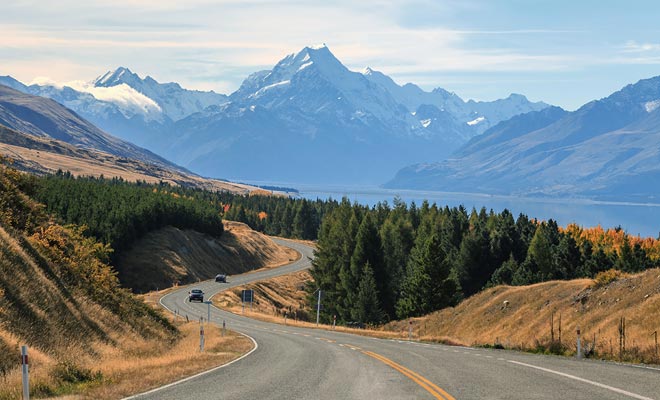
The low traffic and landscapes make the trip very enjoyable.
It is often claimed that New Zealand is the country of the motorhome. This is actually the most popular means of transport among tourists. If you have the means to stay in hotels, I nevertheless consider that the combo car + hotel room is better if you seek comfort, but with recent campervans, this is less and less true.
Travel by Car
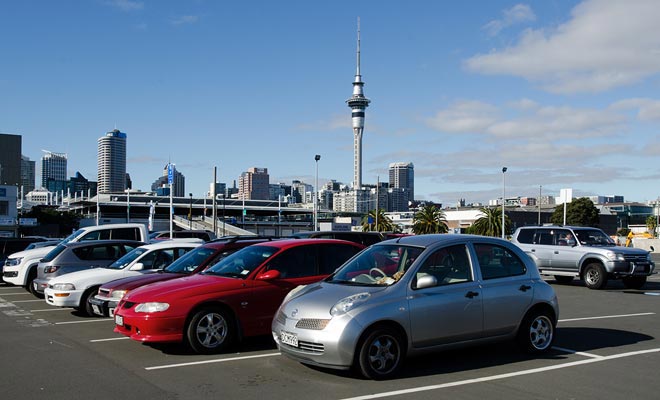
The cheapest rental offer is not always the best.
Some tips are necessary if you want to book your vehicle by the Internet.
Contrary to what one might think, the cheapest offer on the market is not always the most economical.
The floor price is at $15 per day to rent a car. Such an offer is, of course, not available among the most famous rental companies such as AVIS. But such discounts should worry you if you plan to rent a car.
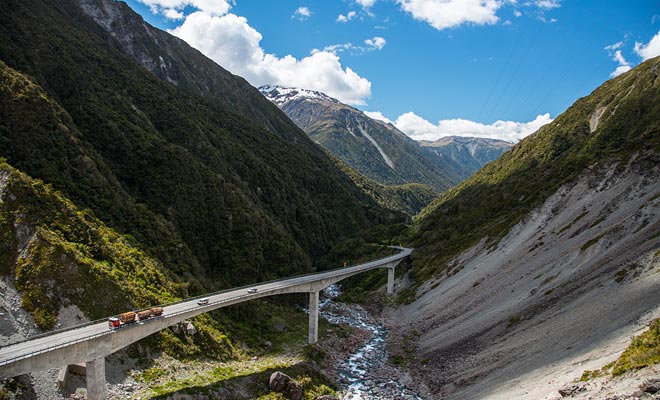
Mountain Road trips consume a lot of fuel.
The market is saturated by old Japanese cars from the 90s. Not only do they consume more gasoline, but they are often archaic in terms of security. Small rental companies sometimes tend to announce imaginary manual transmissions in a country where automatic is king. Kiwipal, of course, does not list such bad rental companies in its comparator.
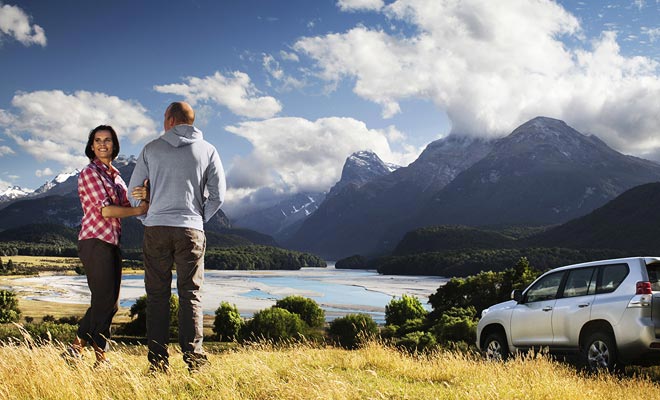
Renting a car is often recommended for a first stay.
The reasonable average price is about $40 per day for a small four-door car. But the price climbs up to $100 and even $150 to book a 4x4 vehicle or SUV.
If you plan to drive on the beach (on the 90-mile beach for example) this must be taken into account as you can't rent an economical car for such use.
While choosing your model, please keep in mind you will need enough space to store your luggage in the trunk. A small car will do for two people, but hardly for four!
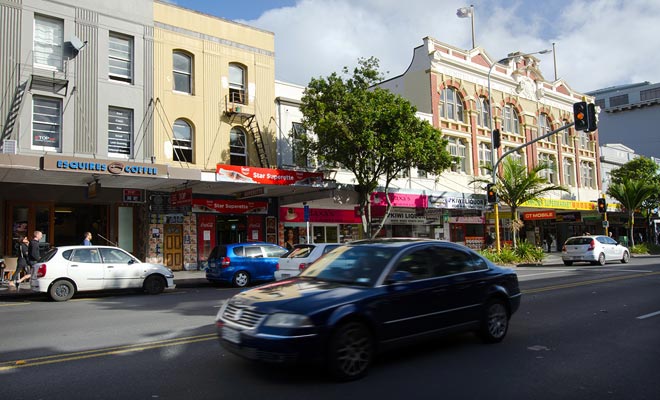
Driving on the left requires concentration for Europeans.
You will normally pay no surcharge for a one-way booking, but it is imperative to refuel before returning the keys. Obviously, the longer you book and the less you pay, but if you are under 25 years, you can expect to pay a bit more than expected for insurance reasons.
It is easy to get a $40 fine if you park your car at the wrong place and the radars are deployed in the whole country. You will receive your fine by mail and do not expect to avoid payment just because you live abroad, or you might get in trouble at the airport.
Travel by Camper Van
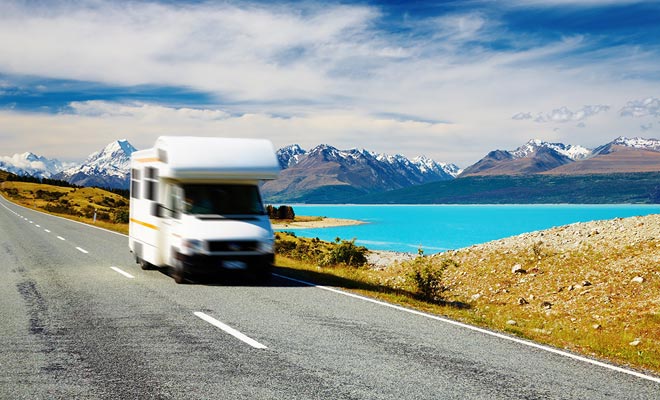
The motorhome help to save money.
People always imagine saving money when traveling in a motorhome. But during the high season, a car and hotel combination can sometimes be more interesting.
For a small camper van it takes about 45 $ per day from May to September, but often more than $70 to $100 from December to February (summer). There are a wide variety of models for a couple or a whole family.
Still it is necessary to park in an authorized site. Freedom camping is legal but only in well-defined areas. One must always check with the nearest iSite to avoid a $200 fine!
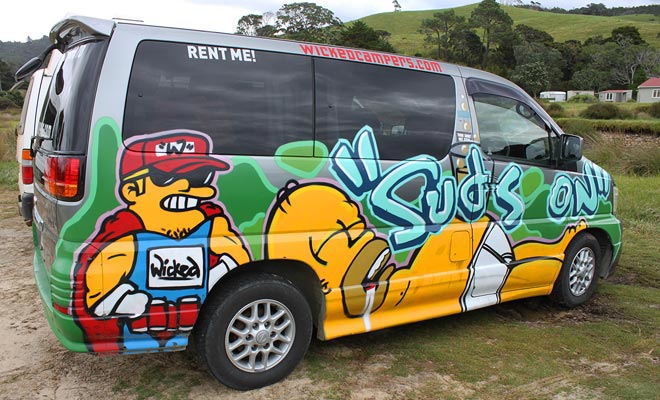
Some models are decorated by artists.
The most comfortable solution is to park the motorhome in a Motorhome Park at $70 per night.
You can take the opportunity to connect the vehicle to a power supply.
The Holiday Parks are a little more festive (ie noisy) but with roughly the same price. Around $50 to $70 per adult by booking because they display often full.
The Department of Conservation (DOC) manages 200 camping grounds, often for free, but with a fee when they include showers and toilets (expect at least $14). You can sometimes connect a camper-van vehicle to a power supply by paying a few extra dollars.
Travel by Bus
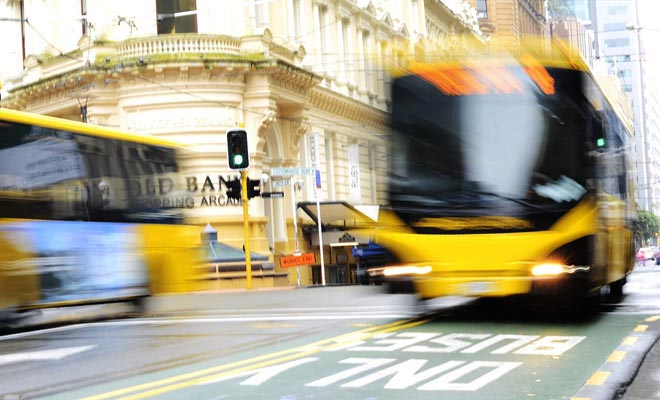
Getting around by bus is only profitable for a longer stay.
Many bus companies are available through the country. The bus network is dense, and I simply cannot reproduce all the prices on this page.
The bus is perhaps the most economical way to travel, but it is slow and not appropriate for a stay of a few weeks where mobility is the key. On the contrary foreign students, seasonal workers and young with a Working Holiday Visa can buy apass to collect points and get discounts.
Travel Insurances

Insurance against car glass is to be considered seriously.
The rental contract usually includes an insurance covering theft and damage to the vehicle in case of road accident. Paying a $10 to $20 extra per day can reduce the insurance deductible to less than $200. To be safe, you can also add a $5 option to cover the glass breakage (which is never covered by default).
Perhaps you are already covered by your insurer in your own country, but your contract is probably invalid abroad and you must not travel without a good insurance.
Gasoline costs

Gasoline is cheaper than in Europe.
Unleaded petrol is about 10% cheaper than in Europe, but consumption depends on your vehicle. Cheap automatic cars tend to waste fuel because of the marked relief of the country!
You should avoid diesel which is not always available at the gas stations, but if you are driving a camper-van, you probably won't have the choice (most of these kind of vehicle run with diesel).
In the itineraries on Kiwipal, we indicate the total number of kilometers. But this is the distance of a perfect trip, without any detour on the road. You should add a 15% margin when you calculate your gasoline budget.
Ferry Crossing
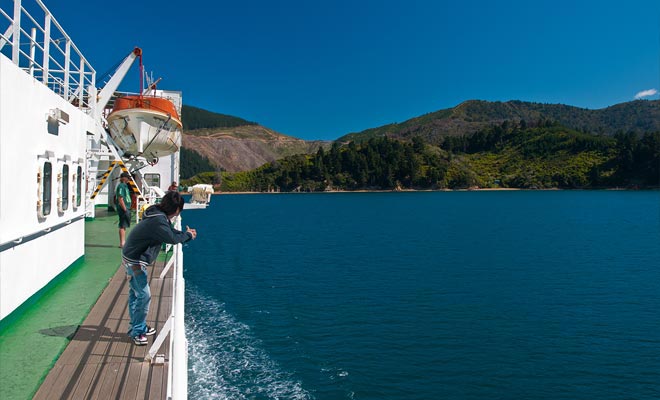
The ferry can be very expensive if you are traveling by motorhome.
The crossing from one island to another is usually done on the Ferry Interislander or Blue Bridge ferries.
Anyone traveling by car can embark his vehicle on board to retrieve it on the other side for a reasonable price. But if you travel with a motorhome, it will cost $270 for the transportation in the hold. Not to mention the price of the trip per person which is about $65. Once again, you don't need a travel agency, because you can book your ferry tickets by the Internet in few minutes.
Your Accommodation Expenses.

On long stays, it is essential to take breaks.
I am a strong supporter of New Zealand's Beds & Breakfasts. Not especially for the price but because they give you the opportunity to meet Kiwis. From a general point of view, the quality of accommodation in the country is excellent.
Hotel
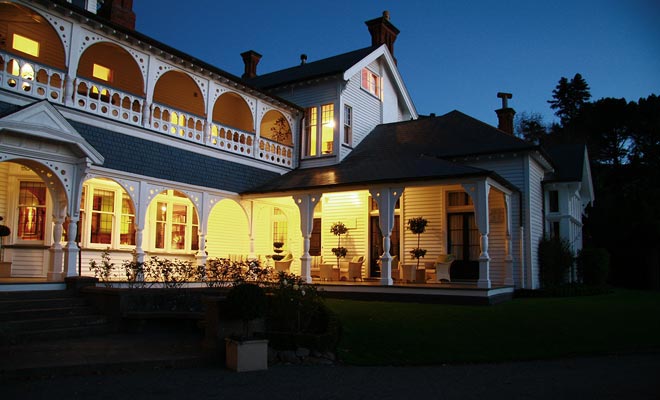
The hotels are of very good quality in New Zealand.
The hotels charge a note between $100 and $150 a night for a couple. For that price you can rent a three-star hotel room for a quality similar to what you would get in Europe. Please note that the hotel prices increase of 25% in large cities.
Once again, you have nothing to gain by booking through a travel agency which generally imposes you a list of accommodations you didn't choose. In all cases, you should book several months in advance, especially if you hope to visit the country during summer.
Bed & Breakfast
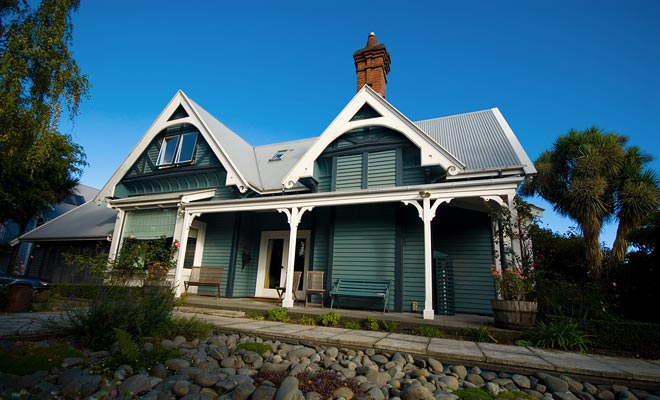
The Bed & Breakfast is highly recommended by Kiwipal.
The rates varies between $50 and $100 per night per person for a good B & B. Which always includes breakfast (this is the principle...). In general, the quality of service is equivalent if not superior to what you can book in Europe.
Youth Hostel (Backpackers)
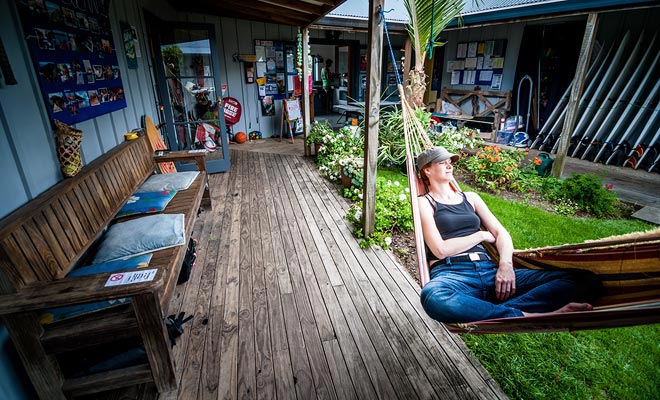
The youth hostels are spread over the whole territory.
You are a student or broke (if not both) and you want to meet people? Expect to pay $20 for a bed in a dormitory and $10 more for a single room. Loyalty cards from YHA and BBH are interesting only if you book at least ten nights.
Internet and Wi-Fi
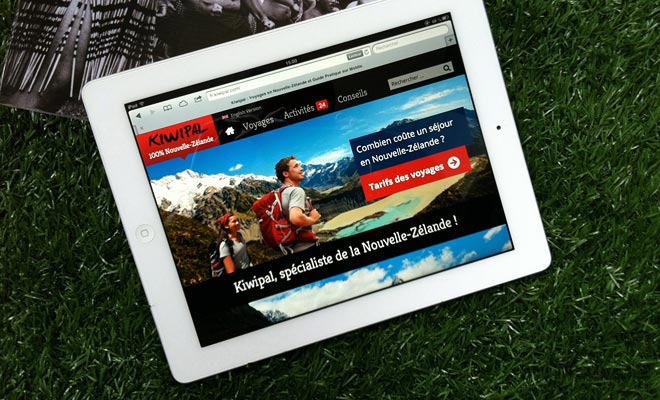
You can check out Kiwipal with the WiFi during your trip.
You should not spend too much money connecting your devices to Wi-Fi. The bandwidth is low (this will be improved in the coming years) but all the correct hotels are connected to the Internet. Most campsites charge $5 for a basic one-hour access. Another reason to stop watching your smartphone all the time. Otherwise, the Wi-Fi network of the Octagon in Dunedin is public, but often saturated.
Your Expenses for Activities.
It is perfectly possible to enjoy the country without spending a dime for your activities, but some of the best like jet boat or sky diving are not coming for free. The prices are quite high and you should plan in advance what you really want to do.
National Parks
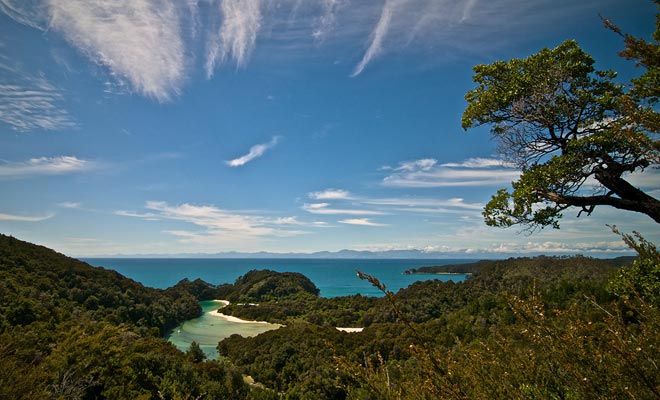
National parks allow you to discover nature safely.
In New Zealand, the National parks are free, but some great hikes of several days are to be paid. The famous Milford Track$150 per person during the high season... and only $15 during winter!
Museums

Museums are often free but a donation is appreciated.
The principle of free museums is widespread in New Zealand. The famous Te Papa of Wellington is free. It would be great to give at least$10 to support this great initiative. Not all museums are free, like the Rotorua Museum but organize great temporary exhibitions.
Attractions & Extreme Sports
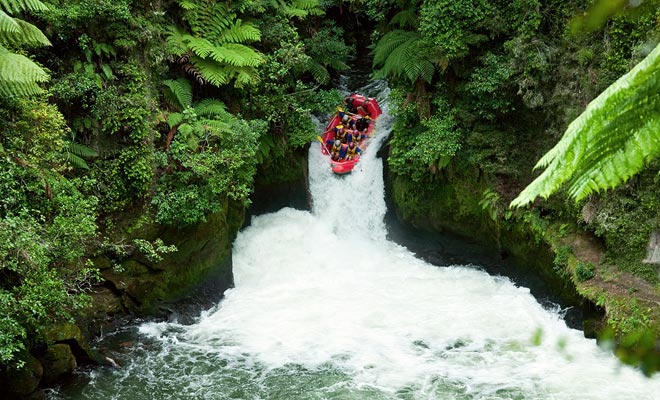
It takes $ 50 to $ 100 to book an unforgettable activity.
New Zealand is also a reference for extreme sports. The city of Queenstown is known as the world capital of adventure. Alas, most activities are paid at full price. Without necessarily talking about bungee jumping (not so many people dare to try), the jetboat, kayak or rafting tours are affordable, at least once during your stay. There are discount cards and discounts if you book several attractions at the same time.
If you are brave enough to try the bungee jumping, Queenstown is a must!
Plan a budget between $50 and $100 for any exceptional activity. And if you can pay for a tourist flight during your stay, you can choose between Bay of Islands, the glaciers or the whales of the Kaikoura Peninsula, which are all unforgettable experiences!
Sorry to repeat myself, but do not use an agency to book your activities and you will often get a better price.
Otherwise, check the rates on the Internet to find special offers, especially at the last minute.
Tongariro Alpine Crossing
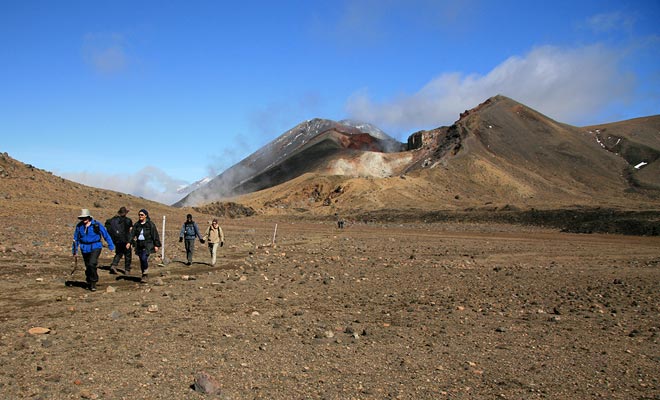
The Tongariro Crossing is free but you have to pay for the shuttle.
The most famous hike of the country is free, but you need to pay a shuttle that will drop you at the start of the trek in the morning and will collect you at the end of the track in the late afternoon. Expect to pay about $40 per person if you are based in Taupo or Ohakune.
Abel Tasman National Park
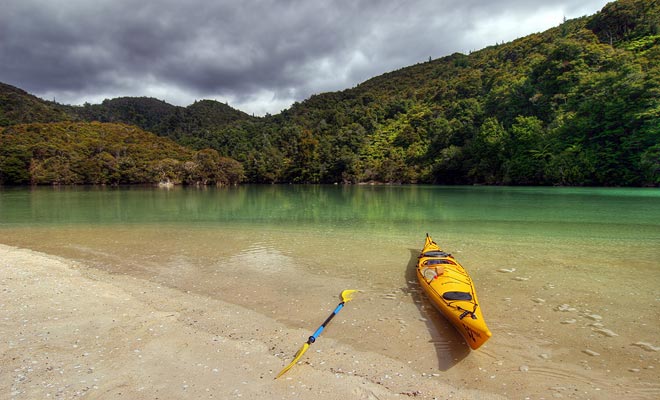
Renting a two-seat kayak costs about $ 100 a day.
This is the major destination of the South Island. The National Park is accessible on foot or by sea exclusively. Therefore, one must rent a kayak or book a water taxi. If you have never experienced kayaking, you should join a half-day tour with a guide, for an average price of $80 per person. If you are already familiar with the kayak, you can even book a model without a guide for $100 a day (for 2 people).
Milford Sound
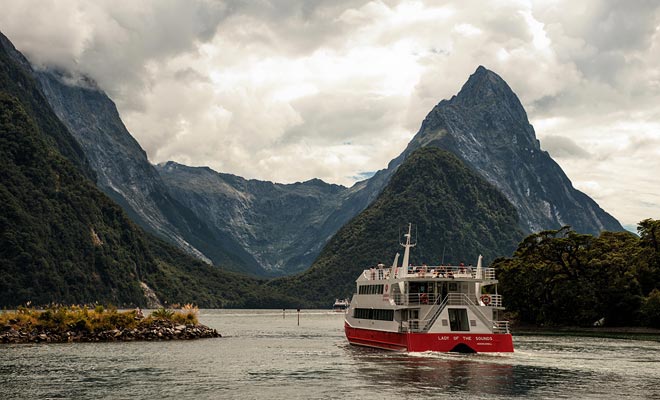
Impossible to leave the country without seeing the Milford Sound.
The Milford Sound is emblematic of New Zealand. You could get away with a simple view of the Mitre Peak, but a cruise up to the Tasman Sea is a must. Expect at least $85 per person.
Doubtful Sound
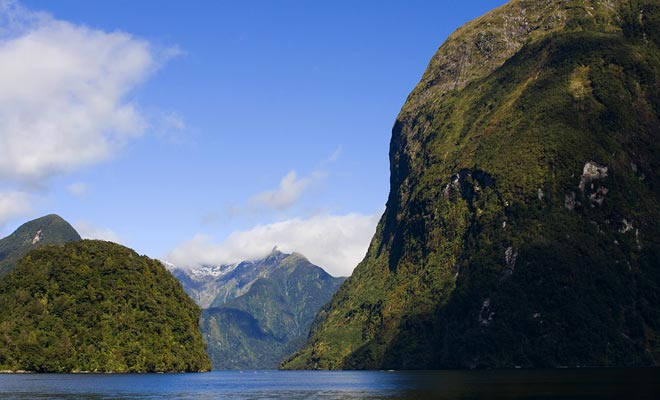
Rather expensive, the excursion to the Doubtful Sound last 8 hours.
Less famous, because far less accessible, the Doubtdul Sound is the wildest fjord of New Zealand. Depending on the schedule and the season of your trip, you can expect to pay between $150 and $250 for a day-trip.
Waitomo Caves
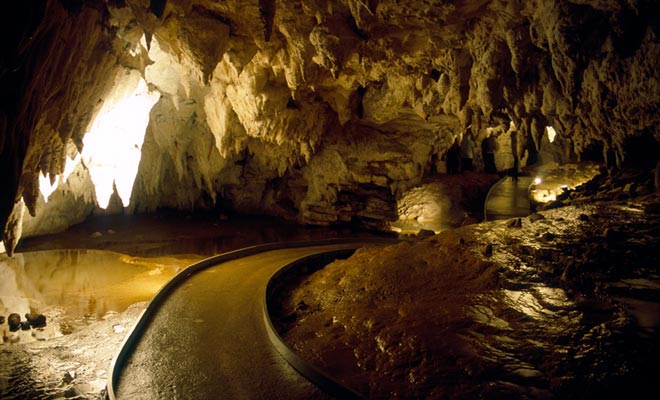
There are several ways to visit the Waitomo caves.
The Waitomo caves filled with stalactites and illuminated by fireflies are extraordinary. Expect to pay $100 for a combo of the three main caves (Glowworm Cave, Aranui and Ruakuri). Even better, the Black Water Company offers a real adventure to the center of the Earth for $100, $150 or 200 $ depending on the length of the expedition.
White Island

The visit of White Island remains affordable.
White Island is one of the few active volcanoes that can be explored in the world. As its name suggests, this is an island off the Bay of plenty. The boat ride and the guided tour up to the crater cost about $200 per person.
Hobbiton
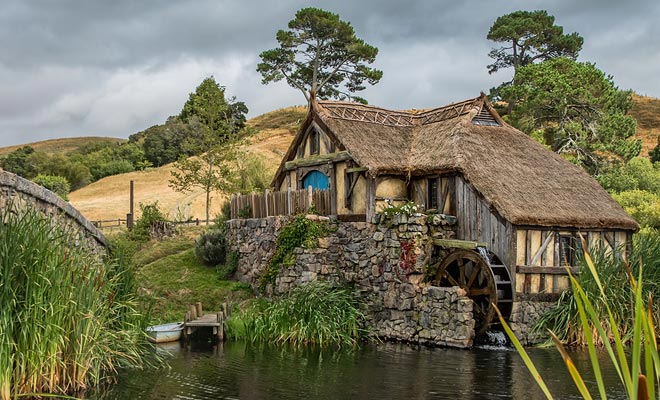
Hobbiton's visit is a bit expensive but recommended.
Hobbiton, the village from The Lord of the Rings and the Hobbit can be visited for $75 per adult and $38 per child. The entrance is quite expensive, but worth the price, especially if you are a fan of the movies.
Mountain Bike rental

The rental of bikes is more interesting by the day.
The mountain bike is one of the best activities in New Zealand. You can rent a traditional bicycle in Auckland with the “Next bike New Zealand” service. But this is at Queenstown and Wanaka where bike trails are exceptional. The rental is quite cheap: $10 to $20 per hour and $30 to $50 for a full-day rental. Remember that a bicycle helmet is mandatory under penalty of fine.
Skiing and Winter Sports
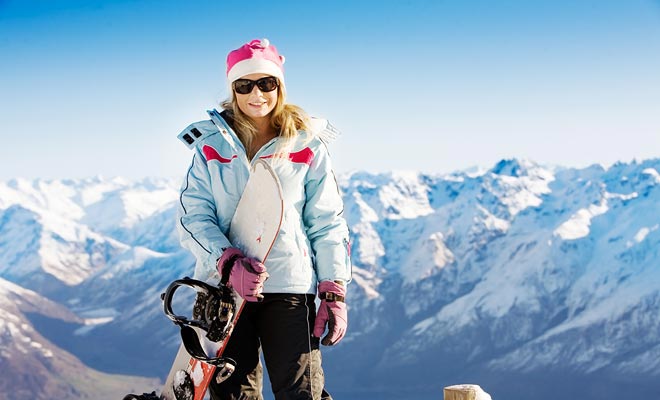
You can ski on both islands for much of the year.
A single day ski pass cost between $35 and $90 depending on the station. Skis can be rented anywhere for $40 a day (a few dollars are charged in addition for the sticks).
Your Expenses in Shopping and Souvenirs.
I am pretty hostile to these shops that multiply all across the country, selling low quality souvenirs.
One does not need to be smart to realize that the majority of these products are not made in New Zealand. The pounamu (green jade from South Island) that you can buy for $50 is usually coming from China...
Clothing
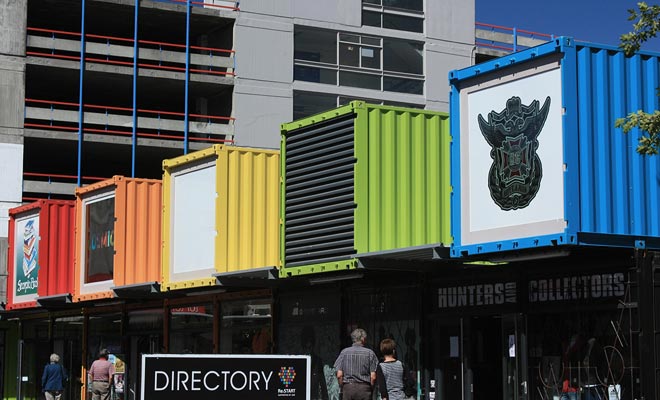
Some clothing costs less in New Zealand.
New Zealand imports its clothes from Asia and some brands are much cheaper than others. Levis jeans cost about 60 $ which is three times cheaper than in France, for example.
Souvenirs

Unfortunately, memories are often made in China.
The city of Hokitika is specialized in the sale of pounamu souvenirs. This is a good place to buy a quality gift, but you should ask to the seller what is the provenance of what you pay, as more and more "pounamu" come from China these days.
There are souvenirs for all budgets with prices between $10 and $500.
The vast majority of sculptures you find in souvenir shops are disappointing (badly carved and painted without application in Asia).
Souvenirs from the Te Papa museum shop are expensive, but the quality is far more superior (which doesn't mean everything is great).
Expect to spend $200 for an authentic souvenir made in New Zealand.
Cigarettes
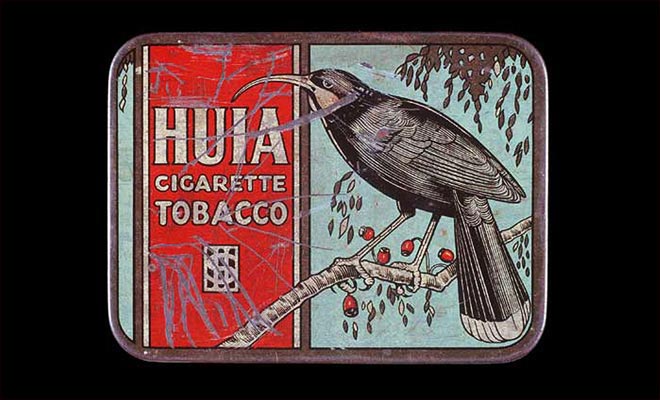
Tobacco is overpriced because the government is trying to ban it.
The government plans to ban tobacco from the whole country. Meanwhile, consumption is already banned in public areas. A pack costs about $25 and increases by 10% each year.
Some Truths About the Budget Required.

Kiwipal suggests realistic and affordable itineraries.
Calculating a budget takes time and nobody can do it for you. This might take you few evenings, but the game worth the candle! By following my advice you should get a pretty good estimate.
Collect as much information as you can on Kiwipal. We present both the activities and the most interesting itineraries.
It is rare that one does not spend more than expected for a restaurant or a souvenir during a stay in New Zealand. Once you have defined your budget, add 10% to the total and you'll get a more realistic estimate.
Keeping some cash in case of problems would be a good idea.
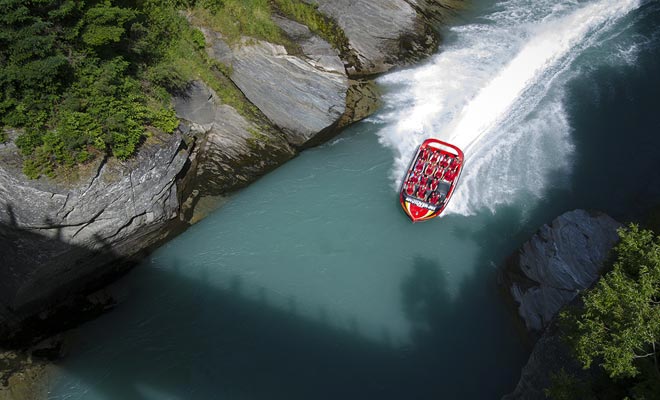
Difficult to resist the desire of Shotover Jet tour.
The type of vehicle to rent is not an easy choice. Renting a camper van allows to reduce the bill but not always.
If you are well organized, you will save a good deal of money. But if you do not plan your stay, you often spend more than expected.
We often hear people saying that camper van rhyme with freedom.
But a tour by car with nights in Bed and Breakfasts can also provide a great flexibility to explore the country.
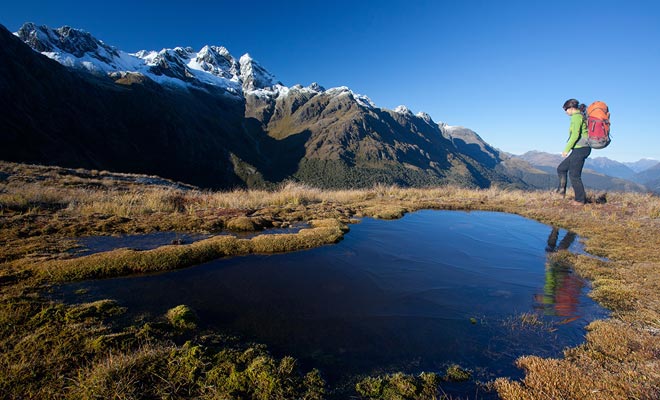
Traveling off-season makes it possible to have the country for you alone.
The best way to reduce the budget is to travel outside the high season. It will certainly be more effective than trying to earn a few dollars on your restaurant’s budget. You should read my article dedicated to the best season to travel, because the solution to your problem lies there definitely!


Questions & Answers.

What can I do for you? I know that a trip to New Zealand is expensive. I can enlighten you on the best solutions to save money and make the stay possible!
- All topics ... 33 answers in total
- Saving Money 7 answers
- Car, Camper and Bus 5 answers
- Activities 5 answers
- Air Travel 4 answers
- Accomodation in New Zealand 3 answers
- Formalities 3 answers
- Carburant 2 answers
- Tips 2 answers
- Camping 1 answer
- Travel Agencies 1 answer
Saving Money
- What is the best way to save money?
By preparing your own meals you can save a good deal of money on your budget. But to realize real savings, one must opt for low quality or free accommodation such as freedom camping.
- What are the price differences with the rest of the world?
Price differentials are highly variable. We can say that the cost of living is slightly lower than in Europe, with differences from 5 to 15% depending on the product. Take a tour in a kiwi supermarket and you will feel like you are getting back to the prices before the arrival of the Euro.
- Should you book the flight yourself?
Booking plane tickets does not present any particular difficulty, there is no good reason to go through a travel agency for this, unless you want to lose money ...
- Can we organize ourselves without a travel agency?
You can always book without the services of a travel agency, and if you want to organize a weekend or a short stay, you have everything to gain by organizing your very own journey.
- Is the trip more expensive with a travel agency?
The travel agency has to pay its employees, and usually has no choice but to increase the prices to earn a commission. This is normal, and any work deserves salary, but you can pay less by organizing yourself your stay.
- Is the euro stronger than the NZD dollar?
Yes, and it should be said that the purchasing power of the Kiwis is lower. This is an undeniable advantage for a tourist stay, but many locals have created overpriced activities to compensate.
- Is it mandatory to have a travel insurance?
The insurance is mandatory only for the Working Holiday Visa. For a short tourist stay, the insurance of your credit card may be enough, but it all depends on the activities you are considering and a real travel insurance would be more secure.
Car, Camper and Bus
- What is the average rental budget of a car?
A rental at $35 a day is reasonable and assures you a recent model. It is possible to get down to $15 but do not expect comfort... however you can expect a higher fuel consumption.
- Is the camper more economical?
The regulars of the camper-van who plan their stay seriously realize real savings. Beginners might spend more than with an autotour.
- Should the franchise of the vehicle be repurchased?
Whatever the type of vehicle rented (car, camper-van ...) it is recommended to buy the insurnace to be covered against windshield damages or the puncture of the tires.
- Is the bus the cheapest transport?
With a loyalty card and many trips, the bus allows you to travel at a reduced price. If not, you'd better rent a vehicle.
- How much does it cost to move from one island to another?
Approximately $70 per person and $270 if you board your vehicle on the ferry.InterislanderBlue Bridge
Activities
- Are museums free?
The permanent collections of some museums are often free, but temporary exhibitions are still paying. This is notably the case of the famous Te Papa museum in Wellington.Te Papa Museum
- Are national parks paying?
All national parks are free, but some famous hikes are paying and limited in number of participants.
- How much do sports activities cost?
Sports or leisure activities are expensive. Include at least $50 if not $100 for an original activity.
- How to get discounts on activities?
You will often find promotional offers at the reception of hotels or B & Bs
- Is Tongariro Crossing to be paid?
The hike is free, but you have to pay for the shuttle that drops you off and picks you up when you return ($20 - $40 per person).
Air Travel
- How much does the visa cost?
Most European travelers do not need Visas to visit New Zealand for three months. Under these conditions, you have no money to spend.
- What is the price of the plane ticket?
The ticket price continues to climb every year. The current fare for a round trip from Europe to Auckland is around 1250 euros.
- What budget to take advantage of a stopover?
It all depends on the duration of your stopover. A hundred dollars from Singapore will be enough to take the subway, enjoy a good meal in a restaurant, buy souvenirs and treats for the rest of the trip.
- Are domestic flights expensive?
If you book your tickets well in advance, the rates are very reasonable and often more competitive than any other means of transport. However, take into account the shuttle fee with the airport before booking.
Accomodation in New Zealand
- Why are lodges more expensive than B & Bs?
Although not systematic, lodges are often more expensive than Beds and Breakfasts. The quality of the service and the most pleasant surroundings justify the difference.
- Are youth hostels reserved for young people?
There is no age limit for booking a bed in a youth hostel. While it is true that the clientele is essentially composed of young people between the ages of 18 and 35, there are also old backpackers.
- Do I have to pay to connect to the Internet?
If you are staying in a B & B you will always benefit from free Wi-Fi. Campsites and hostels usually charge a few dollars for Internet access.
Formalities
- What are the fees for money withdrawing in ATM?
Most European banks will collect about five euros per withdrawal of one hundred euros. It is not excessive, but it is enough for a couple to make ten withdrawals during the stay and thus to be taxed about 50 euros.
- Can New Zealand VAT be reimbursed?
This possibility exists in many countries but not in New Zealand. The GST will not be refunded, even if you hold a Working Holiday Visa.
- Am I obliged to pay my fines?
The hirer of the vehicle will have you follow the fine in your own country. If you do not pay the amount of the fine over the Internet, you will be charged by the rental company. And unpaid fines may prevent you from entering the country again later.
Carburant
- Should you choose a gasoline or diesel car?
Avoid diesel cars because not all petrol stations offer this type of fuel.
- Is gasoline cheaper than in Europe?
Gasoline is actually cheaper than in Europe. But as the country is very hilly and to the extent you drive with a car loaded with luggage, do not expect spectacular savings.
Tips
- Should I give a tip at the restaurant?
Tips are optional but are increasingly common, especially in taxis. You may consider this as a windfall or not.
- How to calculate tips?
You can apply the same principle as in your own country. However, it is not because tipping is optional that one should consider leaving 25 cents for a $30 meal... Tipping was once considered as an insult, and a ridiculous amount could leave a bad impression.
Camping
- Are the campsites paying?
Many travelers think that campsites are free... But if freedom camping is allowed, the campsites who deliver services (showers, laundries, power supply ...) are charged.
Travel Agencies
- How to get a quote for a stay?
I advise you to consult the itineraries created by Kiwipal. You will find rates based on the real market prices, and you can ask for a free estimate.

